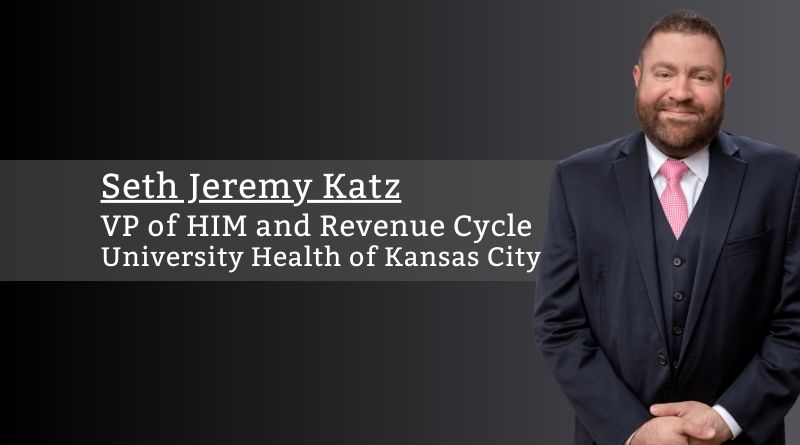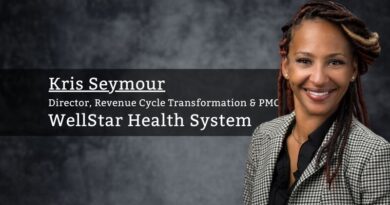Navigating the Medicaid Redetermination Maze
By Seth Jeremy Katz, VP of HIM and Revenue Cycle, Finance, University Health of Kansas City
Medicaid serves as a vital lifeline for millions of Americans, offering essential support during health-related challenges. Despite its indispensable role, the program has often faced the ebbs and flows of political and funding uncertainties in recent years. However, the government has taken significant steps over the years to strengthen this safety net resource. First, they created the ability for states to expand Medicaid coverage under the Affordable Care Act (ACA), which, as of summer 2023, 41 states and the District of Columbia have taken advantage of. Another milestone was the enactment of the continuous coverage provision in response to the early days of the COVID-19 pandemic.
The Families First Coronavirus Response Act included a condition that ensured the protection of patients on Medicaid during the national Public Health Emergency (PHE) by prohibiting states from dropping their coverage for as long as the emergency declaration was active. However, the conclusion of the PHE this past spring eliminated those safeguards, prompting all states to undertake the monumental task of re-determining eligibility for all Americans on Medicaid. The consequences have been substantial: according to KFF (formerly known as the Kaiser Family Foundation), as of November 14, 2023, over 10.6 million patients have lost their Medicaid coverage since the start of the redetermination process.
In these uncertain times, it is imperative for hospital revenue cycle leaders to lead the charge in navigating the complexities of Medicaid redetermination, securing a stable future for both patients and healthcare institutions alike.
Navigating through this transition is not only crucial for the affected patients but also poses challenges and opportunities for hospitals, including academic medical centers like University Health. As a safety net, Medicaid accounts for a significant 44% of our payor mix, making it our largest payor by a substantial margin. Keeping our eligible patient’s Medicaid coverage active is paramount to our long-term sustainability as a community benefit while also ensuring our patients do not delay seeking care due to financial concerns.
In response to this multifaceted challenge, University Health has strategically focused on four key areas to ensure a proactive and effective approach:
Engaging with Patients
University Health prides itself on our robust Financial Counseling Center (FCC) that has been a cornerstone of our operations for decades. In fact, in 2021, when Missouri residents voted to expand Medicaid under the ACA, our FCC became an invaluable community resource, helping citizens across the metro obtain Medicaid coverage, even if they were not our patients. Leveraging their expertise and the success they had under Medicaid expansion, in late 2021, we began planning for the conclusion of the PHE, ensuring readiness for swift action once it was terminated. Our FCC and marketing teams proactively reached out to patients, offering support through in-person, telephone, and video visits to streamline our support during the redetermination process, staffing up where necessary to ensure we could meet the public’s needs. We also ensured all of our clinical staff who interact with patients knew where to appropriately direct patients for enrollment help.
Collaborating with Managed Care Payors
While health systems and payors rarely see eye-to-eye these days, in this situation, both have a vested interest in keeping patients enrolled in Medicaid. For hospitals, it ensures continued reimbursement for treating vulnerable populations; for Medicaid managed care payors, the aim is to maintain their payments from the state, which are based on enrolled lives in their plans. Collaborating on outreach efforts and sharing statistics on conversion or loss rates enhances the redetermination process and encourages a joint effort.
Leveraging Analytics
Recognizing the need for proactive measures, University Health employs data analytics to monitor the status of Medicaid patients throughout the redetermination process. This involves regular assessments of active patients and outreach to those who have lost coverage. For those who now show as inactive, we categorize patients based on their visit history (were they someone who came once a year or a regular patient), insurance status (was Medicaid their primary insurance or was it secondary), and reasons for coverage loss (did they move to another state, obtain employer-sponsored coverage, die, etc.) so we can take the appropriate actions. By staying ahead of potential issues, we can address challenges promptly and not end up in a situation where we suddenly have a massive spike in uninsured patient visits.
Reviewing Financial Assistance Policies
In anticipation of patients losing Medicaid coverage, we revisited our financial assistance policies. Analytical reports helped us understand the services these vulnerable patients accessed within our organization, enabling adjustments to coverage levels, uninsured discounts, and payment handling processes. Clear communication ensures that patients are aware of the assistance options available to them and comply with all applicable regulations or laws.
These efforts have yielded positive results for University Health and our patients. As of November 1, 2023, 85% of our Medicaid patients met the requirements to maintain eligibility. This concerted approach is not just a great effort for our organization; it is a vital commitment to ensuring that those reliant on Medicaid can access high-quality care without the added worry of financial burdens. It is a literal win-win.
Being proactive in the face of Medicaid redetermination is an investment in the long-term sustainability of your organization, preventing sudden influxes of uninsured patients and maintaining the integrity of the healthcare safety net for those who need it most. In these uncertain times, it is imperative for hospital revenue cycle leaders to lead the charge in navigating the complexities of Medicaid redetermination, securing a stable future for both patients and healthcare institutions alike.



